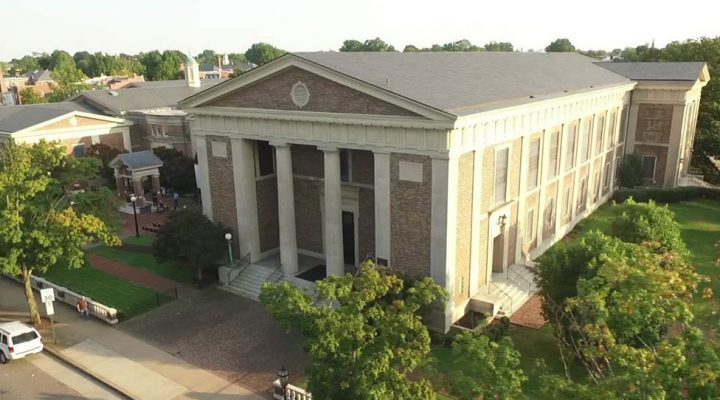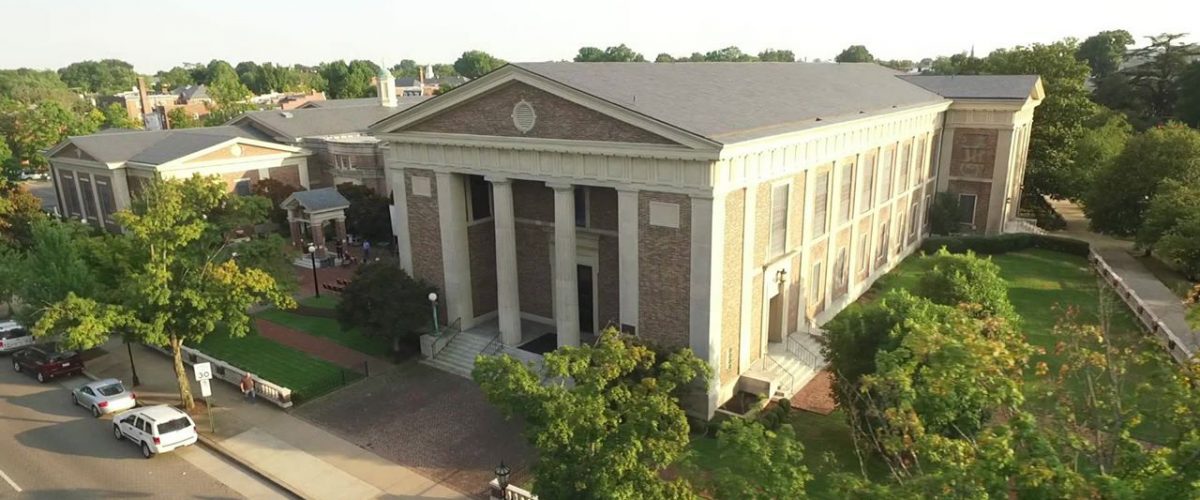A Virginia church with deep historical ties to the Southern Baptist Convention will vote May 19 on a proposal to sever ties with the SBC due to the denomination’s intolerance for women serving as pastors.
For decades, First Baptist Church of Richmond, Va., had close ties to the SBC and its Foreign Mission Board (now International Mission Board). In fact, in those early years after its founding in 1845, the board had offices inside the church building.

Jim Somerville
Today, IMB headquarters are located only a mile down Monument Boulevard. And just as that famous divided boulevard is now largely devoid of the Confederate monuments from which it drew its name, so the relationship between First Baptist and the IMB has been deconstructed since conservatives took over the SBC in the latter part of the 20th century. First Baptist currently is dually affiliated with the SBC and the Cooperative Baptist Fellowship, a breakaway group from the SBC formed in 1991.
This vote, if approved, would remove the final symbol of the church’s historic relationship to the SBC.
A “special announcement” on the church website explains: “The board of deacons recommends that Richmond’s First Baptist Church withdraw as a cooperating church in the Southern Baptist Convention in response to the SBC’s proposed constitutional amendment requiring pastors and elders of its cooperating churches to be men.”
A called business meeting is scheduled for Sunday morning, May 19, in lieu of normally scheduled adult Sunday School classes.
This wouldn’t be the first time the church has left a denominational body.
This wouldn’t be the first time the church has left a denominational body, Pastor Jim Somerville explained in an interview.
In 1844, Virginia Baptists left the Triennial Baptist Convention because it wouldn’t appoint a slaveholder as a missionary. “The very next year, they participated in the formation of the Southern Baptist Convention, spurred on by the leadership of Jeremiah Bell Jeter, pastor of Richmond’s First Baptist Church,” Somerville wrote in a recent blog.
“We left a Baptist convention once for the wrong reasons,” Somerville said in the interview. “It would be nice to leave one for the right reasons.”
Those “right reasons,” he said, include opposing the SBC’s insistence that women may not be pastors and may not preach. First Baptist lists three female ministers on its website, including the longtime senior associate pastor.
This summer, the SBC will take a second vote on a constitutional amendment that would declare with certainty that no church that allows women to preach or to hold jobs with the title “pastor” may remain affiliated with the SBC. The so-called Law Amendment is expected to pass handily, as it did on first reading last year.
That stance is the final straw for First Baptist, which has maintained marginal ties with the SBC for the past 30 years, mainly in deference to church members who worked for or were retired from the IMB.
The church hasn’t sent messengers to an SBC annual meeting in 30 years but has allowed members to choose to have a portion of their offerings sent to the SBC and its missions boards. That has resulted in a few thousand dollars a year being passed through to the SBC.
“We have retired SBC missionaries but we also have women who are pastors.”
First Baptist still has some retired IMB missionaries within its membership, and this is a difficult choice for them, Somerville said. “We have retired SBC missionaries but we also have women who are pastors. Now the SBC is telling us we have to choose. Who do you like more? Your retired missionaries or your female staff members? Nobody is talking about firing the women.”
First Baptist Richmond predates the SBC by 65 years. The church traces its founding to June 1780, one year before Cornwallis surrendered at Yorktown and two years before Richmond was incorporated as a city. First Baptist was the first Baptist church to be constituted in a Virginia city. It also was the first church in Virginia to organize a missionary society for women, the first in the city to organize a Sunday school for children, the first in America to send its own members as foreign missionaries to the continent of Africa and the first in the SBC to have a church library.
The church today maintains its strong commitment to missions, but primarily through the Cooperative Baptist Fellowship and an array of local ministries.
If the motion to sever ties with the SBC passes May 19, First Baptist Richmond will get ahead of the inevitable process that would have the church expelled from the denomination, as has recently happened to other churches with female ministers on staff. If the SBC’s constitutional amendment passes, hundreds of churches are expected to depart the SBC or be kicked out.
Related articles:
Second vote on Law Amendment will take the spotlight at this summer’s SBC annual meeting
As SBC moves toward second vote on Law Amendment, debate continues on just what it means
Anti-egalitarian forces make clean sweep at SBC annual meeting
Saddleback and Fern Creek churches face off against Al Mohler at SBC meeting
Female pastors: Appointed or apostate? Southern Baptists decide | Opinion by Melody Maxwell
A primer on why Southern Baptists are fighting over women in ministry once again | Analysis by Mark Wingfield
The Jesus Room | Opinion by Erich Bridges


